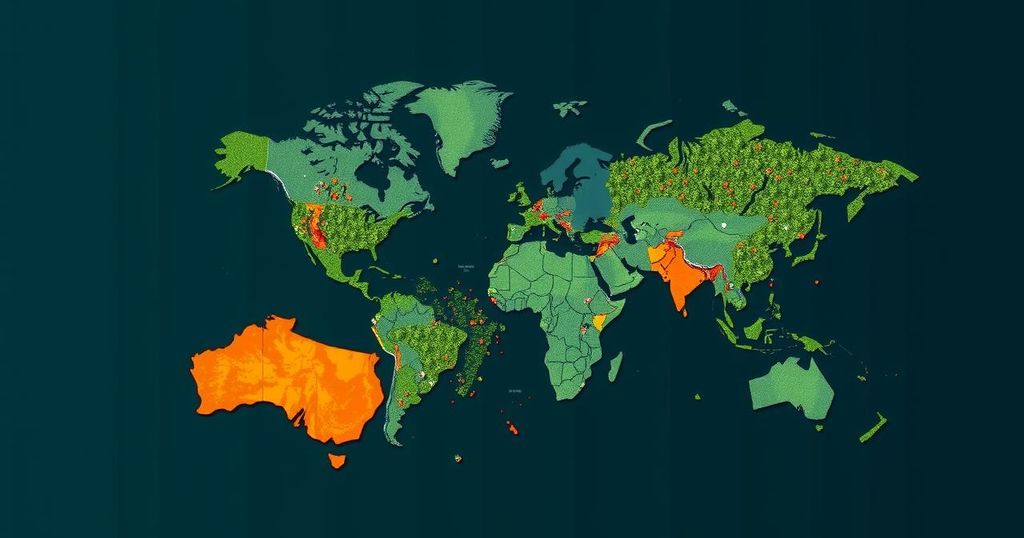Rationing as a Potential Strategy Against Climate Change: Findings from Uppsala University Study

A study from Uppsala University indicates that global acceptance of rationing fossil fuels and high-emission foods is comparable to that of tax measures. The survey involved over 8,600 respondents and revealed that 33 percent support meat rationing and 44 percent support taxation. Acceptance varied among demographics, particularly among those concerned about climate change, highlighting the need for ongoing research into effective policy strategies.
A recent study conducted by the Climate Change Leadership group at Uppsala University in Sweden reveals that the global population may be as receptive to rationing fossil fuels and high-emission foods, such as meat, as they are to taxing these products. This research, involving surveys from over 8,600 participants in countries such as Brazil, India, Germany, South America, and the United States, marks the first comprehensive analysis of public acceptance of rationing as an alternative to traditional economic measures like carbon taxes to mitigate climate change impacts. The lead researcher, doctoral student Oskar Lindgren, noted, “Rationing may seem dramatic, but so is climate change. This may explain why support is rather high. One advantage of rationing is that it can be perceived as fair, if made independent of income. Policies perceived as fair often enjoy higher levels of acceptance.” Interestingly, the study found that Americans were the least amenable to either approach, with 33 percent open to rationing high-impact foods and 44 percent favoring taxes on such items. In comparison, there was a nearly equal split for fossil fuel rationing (38 percent) and taxation (39 percent). Those demonstrating concern about climate change—predominantly a majority across the surveyed nations—showed the strongest support for rationing strategies. Furthermore, younger and more educated respondents exhibited a generally favorable disposition towards these measures. Encouraged by these positive findings, the researchers emphasize the need for further exploration into public attitudes toward rationing and the precise design of such policy instruments.
The issue of climate change poses a significant challenge to global sustainability and requires multifaceted solutions. Traditional approaches have focused primarily on economic instruments, such as carbon taxes, to reduce harmful consumption behaviors. However, new strategies like rationing are gaining attention. By addressing consumption limits on fossil fuels and emissions-intensive foods, policymakers may engage the public in more equitable approaches to reducing carbon footprints. Understanding public sentiment through studies like the one at Uppsala University is essential for developing effective climate action plans.
The findings from the study at Uppsala University suggest that rationing could serve as a viable policy tool in the global effort to combat climate change. Notably, a significant portion of the population expresses openness to both rationing and taxation as effective measures against harmful consumption. As support varies across demographics, particularly among younger and more educated individuals, this indicates a potential pathway for creating fair and widely accepted climate policies. Continued research into public perspectives on rationing will be vital to inform future policy frameworks.
Original Source: macaonews.org






